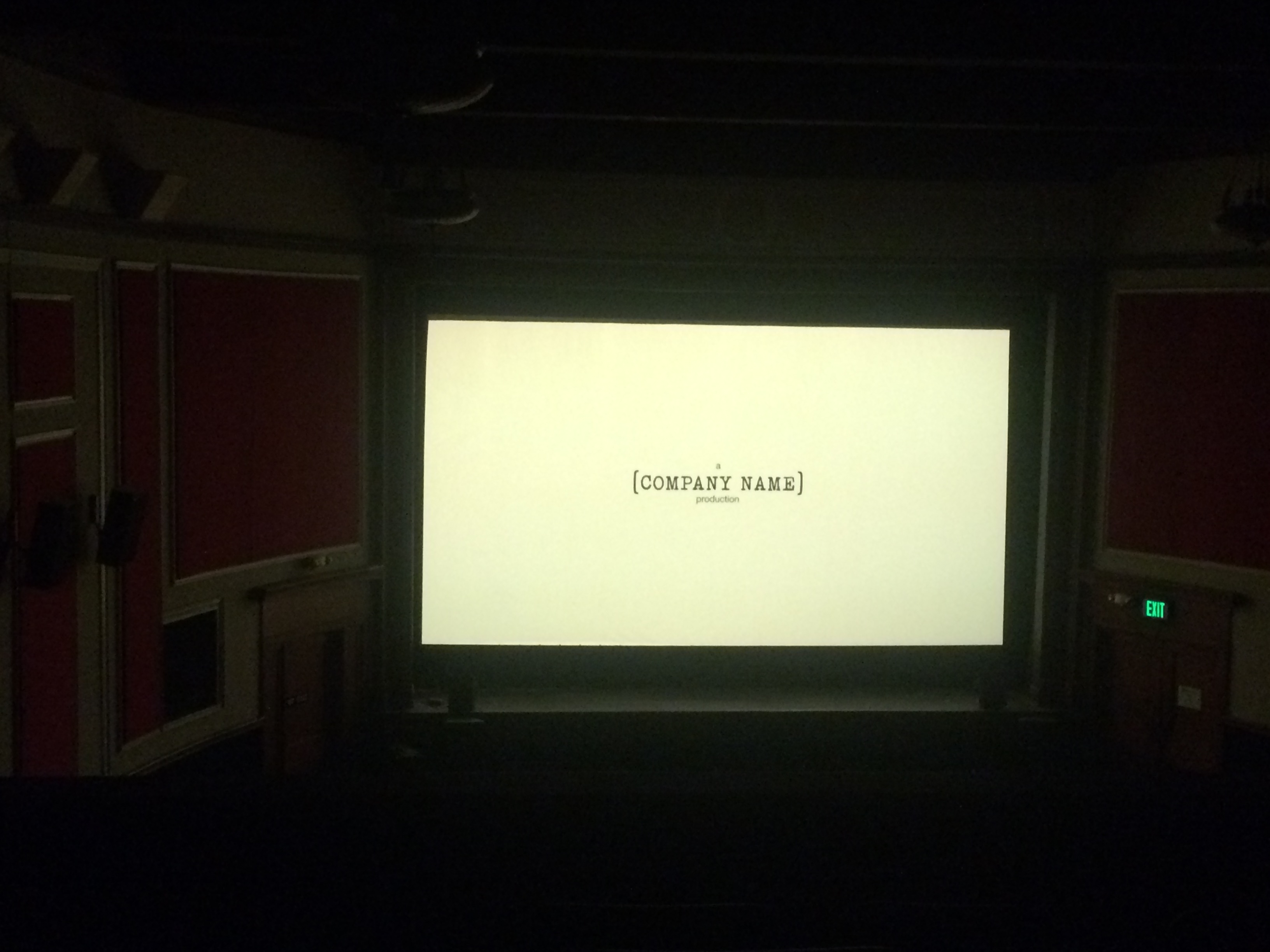 The last day of the 41st Seattle International Film Festival in 2015 was also the last operating day for the Harvard Exit. For those of us who have stayed in the neighborhood long enough to have a sense of ownership or pride, this was a tragedy for all who knew the Exit.
The last day of the 41st Seattle International Film Festival in 2015 was also the last operating day for the Harvard Exit. For those of us who have stayed in the neighborhood long enough to have a sense of ownership or pride, this was a tragedy for all who knew the Exit.
The Harvard Exit started life as clubhouse for the Women’s Century Club in 1925, right across from the Rainier Chapter House for the Daughters of the American Revolution. The main floor was a large hall used for gatherings and parties, with a second ballroom a couple floors above. Filling out the remainder of the space were hallways with offices and various other rooms. In 1968, it was sold for conversion to a movie theater, while the Century Club retained rights for holding meetings in the spacious lobby. Eventually, the second ballroom was also converted to a movie theater. Eventually, Landmark took over the operations of the Exit until it was sold last year to a developer for another conversion into a restaurant.
 As seen in the header image of the final speech given at the Harvard Exit, the theater is large and narrow, but the building itself is rather unassuming and hidden from the usual riff raff. On Capitol Hill, one of the main drags is Broadway, running North-South starting at E Roy Street on the north end. The Harvard Exit is at the corner of Harvard and E Roy, being one block west of Broadway; which is enough to change it from popular hotspot to secret local hideaway. Not even hidden among trees, the Exit and the DAR occupy a corner that seems like a distant world from the hustle and bustle of Broadway and Pike/Pine.
As seen in the header image of the final speech given at the Harvard Exit, the theater is large and narrow, but the building itself is rather unassuming and hidden from the usual riff raff. On Capitol Hill, one of the main drags is Broadway, running North-South starting at E Roy Street on the north end. The Harvard Exit is at the corner of Harvard and E Roy, being one block west of Broadway; which is enough to change it from popular hotspot to secret local hideaway. Not even hidden among trees, the Exit and the DAR occupy a corner that seems like a distant world from the hustle and bustle of Broadway and Pike/Pine.
The Exit wasn’t my first theater in Seattle. That would be the Egyptian, where I saw Faster, Pussycat! Kill! Kill! with special guest Tura Satana. It wasn’t my first indie theater, either. That would be either the Grand Illusion or the Varsity due to proximity to my first apartment. It was, however, my neighborhood secret theater.
 Until last year, the Harvard Exit was owned by a family-run entity. But, it was most recently purchased by Scott Shapiro and his development company Eagle Rock Ventures. Shapiro and Ventures are currently buying up plenty of stock on Capitol Hill, including the block-long marketplace, Melrose Market, and the music venue Chop Suey. Thus, the tragic story of the downfall of the Exit is a similar story of big cities in the U.S.: more and more real estate is falling into fewer and fewer hands. Landlord companies are owning more buildings and decreasing the amount of personal investment. Very recently, a family-owned business, Piecora’s, sold their building to an Arizona-based developer loudly proclaimed as the Nation’s Largest Owner of Apartments. And so it goes.
Until last year, the Harvard Exit was owned by a family-run entity. But, it was most recently purchased by Scott Shapiro and his development company Eagle Rock Ventures. Shapiro and Ventures are currently buying up plenty of stock on Capitol Hill, including the block-long marketplace, Melrose Market, and the music venue Chop Suey. Thus, the tragic story of the downfall of the Exit is a similar story of big cities in the U.S.: more and more real estate is falling into fewer and fewer hands. Landlord companies are owning more buildings and decreasing the amount of personal investment. Very recently, a family-owned business, Piecora’s, sold their building to an Arizona-based developer loudly proclaimed as the Nation’s Largest Owner of Apartments. And so it goes.
With that, helpless peons that we are, we must say goodbye to the Harvard Exit, and the best way to celebrate it is by seeing the final day of movies presented by the 41st Seattle International Film Festival. And, what a lineup it had for us.
Goodbye to Trauma
 First up: Le Challat De Tunis (dear Google, this translates to The Challat of Tunisia, not Challatt Tunes). This feminist half-pseudo-documentary is effectively Poe’s Law: The Movie. In 2003, a man or series of men went around Tunisia knifing women in the butt because they may have been dressed inappropriately, or were rude to him, or whatever. Nobody knows, but everybody speculates. The wave of butt knifing led to speculation that it was one man, dubbed the Challat.
First up: Le Challat De Tunis (dear Google, this translates to The Challat of Tunisia, not Challatt Tunes). This feminist half-pseudo-documentary is effectively Poe’s Law: The Movie. In 2003, a man or series of men went around Tunisia knifing women in the butt because they may have been dressed inappropriately, or were rude to him, or whatever. Nobody knows, but everybody speculates. The wave of butt knifing led to speculation that it was one man, dubbed the Challat.
Female director Kaouther Ben Hania made a mockumentary (kind of?) about her search for the Challat, and trying to understand how the Challat became an urban legend of sorts. She interviews locals trying to figure out the sociological origins and purposes of the challat, and also interviews victims (who may or may not be the real victims), trying to see if they had any insight as to the reasons or who the guy is. During an audition session, one guy who was arrested as the challat comes in telling her that he was the real guy and that she needs to send everybody else home, sending the documentary into a bizarro territory.
Poe’s Law states that “without a clear indicator of the author’s intents, parodies of extremism are indistinguishable from sincere expressions of extremism.” We know Hania’s intent – to expose a sexist belief structure in Tunisia that led to the acceptance of female butt slashing, among other atrocities against women – but her form almost makes it seem like she’s recording the comment board of an extreme site on the internet. Without having a greater insight into the Tunisian mindset, for all we know she could be making a doc. Regardless of the confusion of docufiction, the movie is still an entertaining ride of weirdness.
Goodbye to Sexuality
 Next up is a round of gay self-hatred in the irritating French farce I Kissed a Girl (aka Toute Premiere Fois), about a gay guy who is about to get married has sex with a woman for the first time. He falls in love with her, but can’t bring himself to tell her he’s gay, nor his husband that he’s falling for a woman. Repeat ad nauseum for an hour before having a protracted conclusion. Basically, it’s an idiot plot where if they just had an open conversation, all of this would be dealt with and we could all move towards a proper conclusion.
Next up is a round of gay self-hatred in the irritating French farce I Kissed a Girl (aka Toute Premiere Fois), about a gay guy who is about to get married has sex with a woman for the first time. He falls in love with her, but can’t bring himself to tell her he’s gay, nor his husband that he’s falling for a woman. Repeat ad nauseum for an hour before having a protracted conclusion. Basically, it’s an idiot plot where if they just had an open conversation, all of this would be dealt with and we could all move towards a proper conclusion.
Remember how we all thought Chasing Amy was a watershed moment for mainstream acceptance of lesbians? And then we all came to the conclusion that Chasing Amy was really just the story of a girl who went straight for awhile because of Ben Affleck’s big dick? And then we decided that it was really a huge case of bi erasure? Watching I Kissed a Girl is kind of like that. It takes care of bi erasure fast and early, with the main character saying “bi is just a label for closeted gay.” And, by the end, it never comes to a satisfying conclusion about sexual preference, nevertheless about gay identity.
Even without that, I Kissed a Girl utilizes gay men as a prop for a straight woman’s fantasy of an ideal man. Want a man who won’t ever cheat on you with another woman? Convert a gay! Writer-Directors Noemie Saglio (a woman) and Maxime Govare (a man) decimate interesting questions about sexuality in their quest for terrible comedy. It doesn’t matter that they’re reducing sexuality to a choice, or even a weird connection, just as long as they hold up their monogamous ideals. If you want a real life case of this, just watch the documentary Wrangler: Anatomy of an Icon, and you’ll get a better sense of the chaos that such decisions can perpetrate in a life.
Goodbye to Reason
 Taking a break for sunshine and food, I came back for the second screening of the Gay-La centerpiece, Tangerine. On Christmas Eve, trans* hooker Sindy-rella is released from jail only to be told by her best friend, Alexandra, that Sindy’s pimp and boyfriend, Chester, has been stepping out on her with a real woman named D-something. Suddenly, Sindy is on a mission to right this wrong, to find D-whomever and get some justice. Meanwhile, Alexandra is trying to gather friends and clients to see her perform at Hamburger Mary’s that evening.
Taking a break for sunshine and food, I came back for the second screening of the Gay-La centerpiece, Tangerine. On Christmas Eve, trans* hooker Sindy-rella is released from jail only to be told by her best friend, Alexandra, that Sindy’s pimp and boyfriend, Chester, has been stepping out on her with a real woman named D-something. Suddenly, Sindy is on a mission to right this wrong, to find D-whomever and get some justice. Meanwhile, Alexandra is trying to gather friends and clients to see her perform at Hamburger Mary’s that evening.
Crude, violent, sexual, humanist, youthful, paced like a rocket-car, and otherwise just a blast, Tangerine feels like everything Jerry Springer presents Ringmaster was trying to be back in the 90s. Even as you feel the humanity of all the characters involved, there is a level of outrageous exploitation in Tangerine as you watch a group of people that polite society would rather ignore do things that polite society would rather not see. From drugs in a bathroom to motel orgies to corner donut shops, Tangerine presents its characters with little condemnation but still feeling a bit voyeuristic for reveling in the trashy exploits.
Still, with a vivid moving camera (it was filmed on a phone!), and a plot that goes every which way but loose, Sean Baker keeps the whole proceedings vital and vibrant. His primary goal is to entertain, and entertain he does. He even challenges our thoughts about dignity with a final act that seemingly has little to do with the rest of the movie. What is dignity? Are they giving it up, or are they trying to keep hold of it in the way they can? The final humiliation challenges your thoughts on everything that came before it in such a sublime way. It’s almost perfect.
Goodbye
 With a perfect sense of taste, the final screening at the Harvard Exit was TBA for a week into the festival. What would the last frame ever shown at the Exit be? Finally, we got our answer: All Things Must Pass, Colin Hanks’ documentary about the rise and fall of Tower Records. Hanks and all of the subjects involved are far more interested in lionizing Tower Records than dissecting its corpse. Starting from Tower Records’ humble origins as a department in a drug store in Sacramento, Hanks goes through Tower’s ramshackle speedy expansion up and down the West Coast and then bridging to international waters.
With a perfect sense of taste, the final screening at the Harvard Exit was TBA for a week into the festival. What would the last frame ever shown at the Exit be? Finally, we got our answer: All Things Must Pass, Colin Hanks’ documentary about the rise and fall of Tower Records. Hanks and all of the subjects involved are far more interested in lionizing Tower Records than dissecting its corpse. Starting from Tower Records’ humble origins as a department in a drug store in Sacramento, Hanks goes through Tower’s ramshackle speedy expansion up and down the West Coast and then bridging to international waters.
By 1999, Tower Records had 192 locations in a variety of countries, moving $1b in product. But, like most record stores, it couldn’t change fast enough to flex with consumer demand. In the US, Tower is no more. The downfall is treated like every other downfall, with a restructuring leading to a gutting as tensions between executives went for the jugular.
Still, the fall of an industry chain whose beginnings were stores where celebrities would joyously worship at the altar of music is an appropriate way to say goodbye to a theater who started as a humble hall and was eventually run by a national chain (Landmark). Closing the doors behind the last customer, watching the crew pack up from the final festival, seeing the concession stands lay empty for the last time, as everything is dismantled, locked up, and closing down still evoked a few tears in the eyes.
A dedicated patron brought expensive bourbon to share with the mourning crowds. A shot glass was thrown into the fireplace to break through the spirits said to haunt the Exit. Soon enough, the theater will be gutted and replaced with another expensive restaurant and offices. Seattle is down yet another art house. And, all things must pass.



